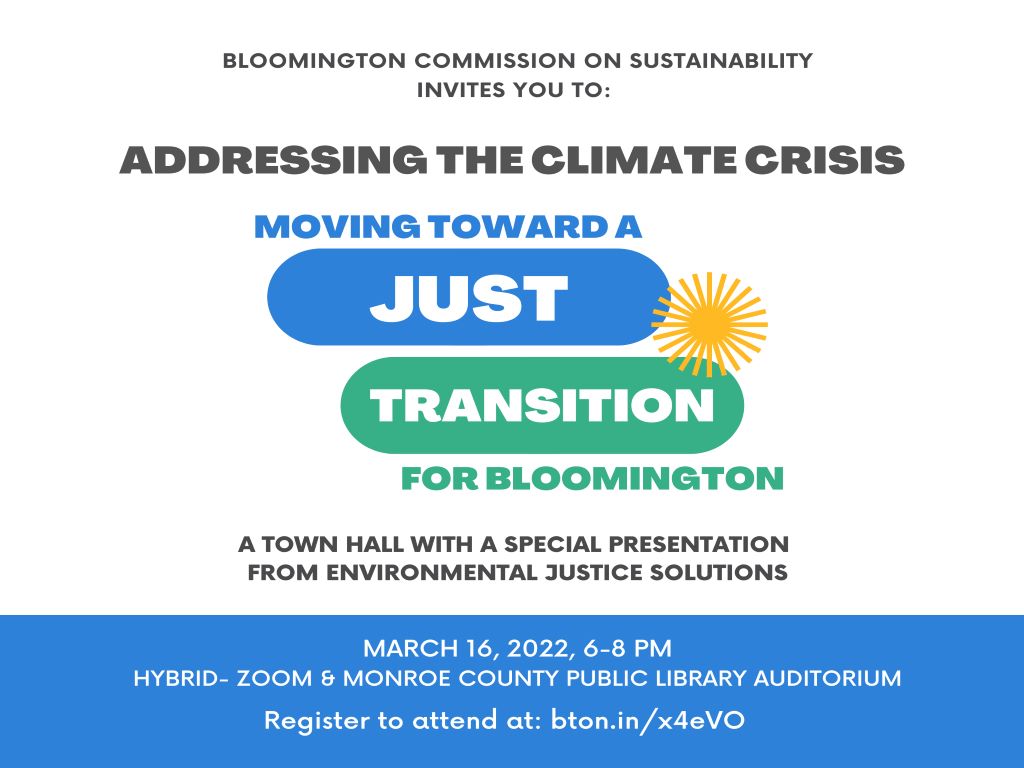The Bloomington Commission on Sustainability partnered with the City of Bloomington's Department of Economic and Sustainable Development to organize and host the town hall. The Commission on Sustainability identified Environmental Justice Solutions (EJS), a consulting collective based in Oakland, CA, to share their racial equity impact assessment tool with Bloomington community members.
Several commissioners developed and presented a project proposal and resolution for the full commission to approve, outlining the event's objectives, funding, stakeholders, and partners. Once approved, the commission developed a two-phased communication strategy to advertise their event to the broader community and engage stakeholders in the conversation.
The event was divided into two parts. The first portion included a presentation from the commission and EJS on environmental equity and justice, as well as how the REIA tool was developed and utilized in Oakland. In the latter half, commissioners and the EJS presenters facilitated conversations among community members about climate equity issues in Bloomington. Running for two hours, the town hall was hosted in a hybrid format where approximately 20 percent of attendees gathered at Monroe County s Public Library and the other attendees attended via zoom to accommodate the ongoing COVID-19 pandemic.
Funding
The City of Bloomington’s Commission on Sustainability requested and secured $1,950 from the Economic and Sustainable Development Department to fund the event. The funding covered hourly rates paid to Environmental Justice Solutions consultants presenting at the town hall, as well as the flyers and marketing materials for the event. Since the town hall was hosted by a city commission, the reservation of Bloomington’s public library and the recording services during the event were both cost-free.
Timeline
Commissioners proposed the idea for a Just Transition Working Group as part of the Bloomington Commission on Sustainability during the summer of 2021. By September of that year, the working group members began writing the proposal for the Just Transition Town Hall. After refining the resolution for the commission’s consideration, the event was approved in December of 2021. The event was held on March 16, 2022.



